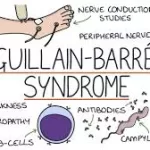In today’s fast-paced world, the Western diet—rich in processed foods and low in fiber—has been linked to a growing number of chronic health conditions, including obesity, diabetes, and heart disease. But recent research suggests that a shift towards eating like the people in rural Papua New Guinea may hold the key to improving gut health and combating these modern health crises.
Dr. Akshay Minhas, a lead researcher in a study published in Cell, has dedicated much of his career to understanding how the human gut microbiome, the community of bacteria, fungi, and viruses in our digestive tract, influences our overall health. In a groundbreaking study spanning nine years, Minhas and his team analyzed the gut microbiomes of rural Papua New Guineans, whose diets are dominated by unprocessed plant-based foods, fiber-rich vegetables, legumes, and fruits.
What they discovered was profound. The gut microbiomes of these people were not only more diverse than those of Westerners, but they also contained a greater abundance of bacteria that thrive on fiber, leading to lower levels of inflammation. This research provided insight into how diet could potentially restore balance to our gut microbiomes, which are often damaged by the industrialized, processed foods that dominate Western diets.
The traditional Papua New Guinean diet, which is low in sugar, high in fiber, and virtually free of processed foods, served as the inspiration for the NiMe (Non-Industrialized Microbiome Restore) diet—a new dietary approach developed by Minhas and his team. The NiMe diet focuses on vegetables, legumes, and fruits while limiting animal protein to a small serving per day. It excludes highly processed foods, dairy, beef, and wheat, which are not common in the traditional diet of rural Papua New Guinea.
After testing the NiMe diet on healthy Canadian adults, the results were striking: participants experienced weight loss, a 17% reduction in bad cholesterol, a 6% decrease in blood sugar levels, and a 14% drop in C-reactive protein—a key marker for inflammation and heart disease. These improvements were directly linked to changes in the participants’ gut microbiomes, particularly in the reduction of harmful bacteria associated with industrialized diets.
The NiMe diet’s impact went beyond inflammation. It encouraged the growth of beneficial bacterial byproducts, such as short-chain fatty acids, which have been shown to protect against type 2 diabetes and nerve damage. It also reduced harmful byproducts linked to colon cancer by promoting carbohydrate fermentation over protein fermentation.
However, it’s important to note that while the research offers compelling evidence of the benefits of the NiMe diet, it is still in the early stages of exploration. Dr. Minhas and his team stress the need for further research to better understand the long-term effects of such a diet and how it may benefit different populations.
Disclaimer: This article reflects the findings of ongoing research and does not constitute medical advice. The NiMe diet, while showing promising results in a controlled study, may not be suitable for everyone. Consult a healthcare professional before making significant dietary changes, especially if you have underlying health conditions.











